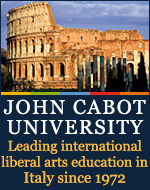
| IIE Home | Membership | Publications | Open Doors | Contact Us | Subscribe |
|
||
|
News
November 1–3, 2011 The 2011 WISE Summit, which takes place from November 1–3, 2011, in Doha, Qatar, explores the theme of "Changing Societies, Changing Education." On Day 1 of the Summit, the focus will be on how innovation and change happen in different sectors, and whether and how these models may inspire new strategies for education, as well as intersectoral collaboration for development. Discussion on Day 2 will sharpen the focus on innovation in the education sector. Participants will explore models for whole-system reform of education, as well as individual "break-the-mold" projects that may inspire broader reforms. On Day 3, the discussion will turn to the future, inviting new visions and new thinking about how education and lifelong learning systems may better meet the needs of changing societies, and better prepare learners for the unknown future. Throughout the Summit, 1,200 decision-makers, practitioners, and thought leaders from different sectors will share and debate ideas, discuss new ways to address major challenges, and ways to promote purposeful action. The World Innovation Summit for Education (WISE) is a global collaborative initiative established by Qatar Foundation under the patronage of Her Highness Sheikha Mozah Bint Nasser Al Missned. Qatar Foundation works in partnership with international organizations involved in global educational issues. These partners are closely associated with the WISE event, helping conceive high-quality debates and promoting the WISE initiative through their international networks. IIE is one of six partner organizations. IIE will organize two special workshops at the WISE Summit: Building the Knowledge Economy: Human Capacity Development through Scholarship Programs Beyond Rankings: Classifying Diverse Institutions of Higher Education Globally The Summit will also provide more ways to interact through social media. You will be able to pose questions prior to and during the different Summit sessions and follow the sessions live on the website and on Twitter. For more information, please go to: www.wise-qatar.org A special editorial section in the October 24 edition of The Chronicle of Higher Education highlights how, in spite of budgetary reductions, the Fulbright Program continues to promote innovative projects addressing global challenges. Feature articles in this special Chronicle report include profiles of an Afghan Fulbright Student engineer who hopes to help rebuild his country, a Fulbright-mtvU grantee promoting interfaith dialogue and peace in Northern Ireland, and a Fulbright Scholar addressing HIV/AIDS in Sierra Leone. The edition also includes the lists of "Top Producing" schools — those institutions in each Carnegie Classification that had the highest number of students and scholars who received Fulbright grants this year. Special charts and graphs include:
To read the special coverage of the Fulbright Program on The Chronicle of Higher Education, please visit: http://chronicle.com/article/Fulbright-Keeps-Moving-Forward/129499/ To view the expanded lists that include the names of all the colleges and universities that had students or scholars who received U.S. Fulbright Program grants for 2011-12, please go to: About the Fulbright Program The Fulbright Program, the U.S. government’s flagship international educational exchange program, is sponsored by the Bureau of Educational and Cultural Affairs of the United States Department of State. Since its inception in 1946, the Fulbright Program has provided more than 300,000 participants — chosen for their academic merit and leadership potential — with the opportunity to study, teach, and conduct research, exchange ideas, and contribute to finding solutions to shared international concerns. In the United States, the Institute of International Education administers and coordinates activities relevant to the Fulbright Student Program and Fulbright Scholar Program on behalf of the U.S Department of State. To find out further details on your campus's involvement with the Fulbright Student Program, please contact Tony Claudino at IIE (tclaudino@iie.org); for details regarding the Fulbright Scholar Program, please contact Peter Vanderwater at CIES (pvanderwater@iie.org). The Institute of International Education (IIE) will host an invitation-only roundtable discussion, "Supporting Libya's Future: Higher Education and Training in the New Libya," on November 10th at the IIE offices in Washington, DC. Hosted by IIE's President and CEO, Allan E. Goodman, the roundtable discussion will focus on themes such as the role of education in reconstruction and development in Libya and private sector involvement. The panel will be comprised of leading experts representing a variety of sectors and perspectives on the future of higher education and training initiatives in Libya. For more information about this event, please contact Vasilena Ivanova at vivanova@iie.org. A blog post on The Chronicle of Higher Education’s website argues that the growing influence and power of global higher education rankings have often had detrimental effects on higher education systems throughout the world. The post urges international organizations to "come together to Say No to Rankings as the basis for policy making, and caution stakeholders accordingly. In the same way that governments issue "health warnings" against (for example) cigarettes, an unequivocal public campaign should be waged pointing out to governments the dangers of using rankings for such purposes." To read the full post, please visit: http://chronicle.com/blogs/worldwise/its-time-to-move-beyond-rankings-2/28830?sid=at&utm_source=at&utm_medium=en More than half of all foreign students worldwide are enrolled in Europe. Over the past nine years, their overall number has risen by over 80 percent, to more than 1.5 million. The main growth has been with non-European source countries, particularly in Asia. But about one quarter of these students have not been mobile — they lived already in their country of study, even though they held a foreign passport. And numbers of foreign students differ radically between European destinations. Outflows are also unevenly distributed, and go mainly to other European countries. Less than 15 percent of European study abroad students leave their own continent. These are some headline findings of the new study Mapping Mobility in European Higher Education, which has just been published electronically by the European Commission, for whom it was produced. It was written by the Academic Cooperation Association (ACA) and INCHER (University of Kassel), in cooperation with ACA members DAAD and CampusFrance, as well as HIS (Hannover). Mapping Mobility provides an in-depth and up-to-date account of student mobility into, out of, and between 32 European countries. The study also sums up the globally available knowledge on staff mobility, and includes in-depth case studies of 11 European countries. To access the report, please visit: http://ec.europa.eu/education/news/news3101_en.htm Conferences
Early Registration Deadline: November 1st The Washington International Education Council is pleased to invite your participation in the Conference taking place at the University of California’s Washington, DC Center and Embassies throughout Washington. The 10th Annual Conference will take place on January 23rd and 24th, 2012. The WIEC is recognized as the premier event focused on international student recruitment, bringing together universities from throughout the United States with sponsoring organizations. Conference participants will hear from key Embassy and sponsoring organization personnel on programs that fund international students in the United States. In addition to the Embassy meetings, Conference sessions will include practical information that can immediately enhance your international recruitment program at minimum cost to your institution. Distinguished presenters from the Institute of International Education (IIE) will provide information on the latest trends in international student enrollment. Government representatives will discuss the latest developments on visa issuance and regulations governing international students while they are in the United States. For additional information and registration forms, please contact inquiries@washcouncil.org or visit www.washcouncil.org. Deadlines
Project Proposal Deadline: November 27, 2011 Researchers in science and engineering in the U.S., Canada, and other countries are invited to host German RISE interns coming to North America during summer 2012. DAAD will support these short-term summer internships by awarding scholarships to successful applicants to help cover part of their living and travel costs. Why host a German intern? Participating researchers receive invaluable assistance with their own work. They profit both professionally and personally from contact with the RISE worldwide interns by getting a chance to deepen their knowledge of the culture, lifestyle, and higher education system in Germany. Project proposals within the RISE worldwide program for summer 2012 may be submitted from October 10 to November 27, 2011 on www.daad.de/rise-programs. April 4-6, 2012 On April 4-6, 2012, the Asia-Pacific Association for International Education (APAIE) Conference 2012 will bring together over 800 delegates from over 50 countries to explore the theme: "University's Social Responsibility for the Benefit of Mankind." Created in the spirit of EAIE and NAFSA, the Asia-Pacific Association for International Education is the largest organization of its kind in the Eastern hemisphere. APAIE 2012 at Mahidol University, Thailand, seeks to provide an effective setting for skill and knowledge building and to advance the cultivation and exchange of creative ideas worldwide. For more information and to register, please visit http://apaie.org/conference/2012/registration.php The deadline to submit proposals is November 15, 2011. For more information, please visit: http://apaie.org/conference/2012/proposals.php Application Deadline: November 1, 2011 IIE’s Council for International Exchange of Scholars (CIES) is now collecting applications for the Fulbright International Education Administrator Programs in Japan and South Korea. The application deadline for these programs is November 1, 2011. The IEA programs help international education professionals and senior higher education officials from the United States create empowering connections with the societal, cultural, and higher education systems of other countries. Grantees will stay either three weeks in Japan or two weeks in South Korea, learning about the host country’s higher education system from the inside out while establishing networks of U.S. and international colleagues. Grantees return with enhanced ability to build connections with higher education institutions in the country visited. For more information, please visit www.cies.org/IEA. Partnerships
USDA is seeking Expressions of Interest from U.S. universities with strong, longstanding relationships with African agricultural universities — particularly one of the following: the University of Malawi/Bunda College of Agriculture, the University of Liberia/William R. Tolbert, Jr. College of Agriculture & Forestry, or Kenya/Egerton University — to strengthen their institutional capacity through a trilateral partnership with Indian universities. To improve food security, the United States Government (USG) and the Government of India (GOI) launched a new partnership that brings together the capabilities of the U.S. and India to address poverty and hunger in India and around the world. Building on strong, preexisting relationships between U.S. colleges of agriculture and equivalent African and Indian institutions, USAID and USDA envision an innovative three-way partnership that can reach out to the private sector and other interested stakeholders to address the agricultural needs of Africa. African colleges could use assistance to build capacity in a variety of areas including: research/higher education governance, administrative capacity (grants management, peer review, etc), teaching methodology, curriculums and teaching materials, and graduating students with the agribusiness skills essential to building market linkages and sustained growth of the sector. Indian universities have experience in innovative agricultural technologies that could have a substantial impact on food security in Africa. The intent of this project is to combine those Indian strengths with U.S. university expertise in capacity building. U.S. universities will work with partner institutions in Africa and India to jointly develop and implement capacity building programs. These programs must effectively address and mitigate weaknesses and exploit opportunities for African agricultural education institutions to support national development objectives. More specifically, the U.S. partner will work with and mentor their Indian institutional partner to identify and organize project activities such as needs assessments, establishing training priorities, designing educational programs, and facilitating the coordination of the educational programs in cooperation with their Indian partners. That may include: selection of training participants for workshops and faculty exchange programs, providing international travel expenses for African participants, and monitoring and evaluating program effectiveness. Level of Effort: The program is to be implemented over the course of 24 months. Resources: $2.4 million over the life of the project will be divided among three partnerships. Travel: Activities will take place in Africa and India. There will be three individual partnerships (one each for Kenya, Liberia, and Malawi) comprised of a U.S. university, an Indian agricultural institution, and an African university. It is envisioned that U.S. university administrators and faculty members will travel to India and Africa for short-term activities. Interested parties are not requested to submit a complete proposal at this time, but rather submit a letter of interest in the project. USDA will make individual awards to three or four parties to execute activities under this program. USDA will look favorably on expressions of interest from minority-serving institutions. Criteria for Selection Applicants must demonstrate the following:
More Information and Submission Interested applicants should send a letter of interest, no longer than five (5) pages to Susan Waage and Jonathan Hamrell, Office of Capacity Building and Development, Foreign Agricultural Service, USDA. For questions, please email: susan.waage@fas.usda.gov or jonathan.hamrell@fas.usda.gov. The letter of interest should be received by November 11, 2011. |
| www.iie.org/iienetwork • Member website of the Institute of International Education © 2025 Institute of International Education. All rights reserved. |



